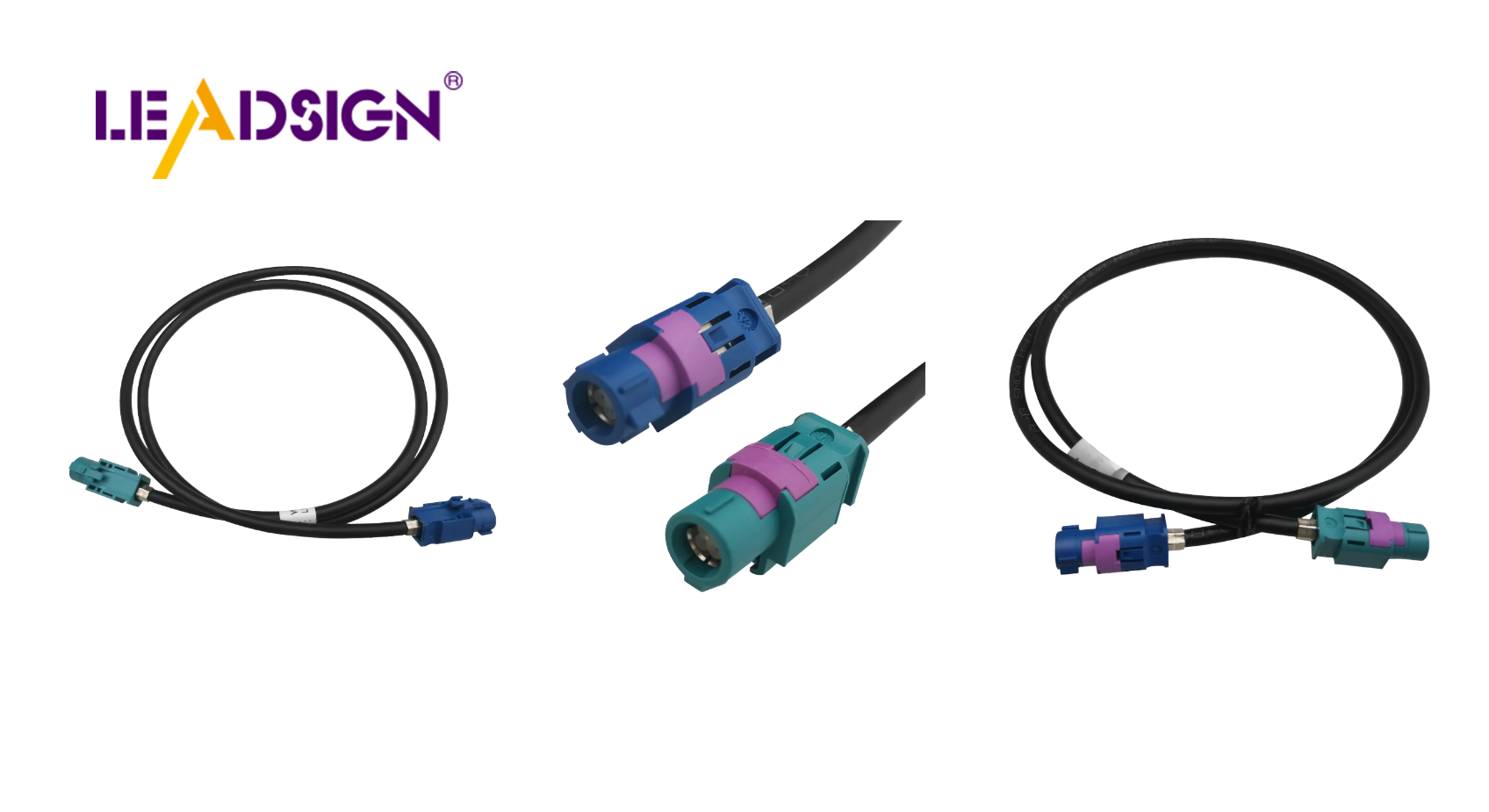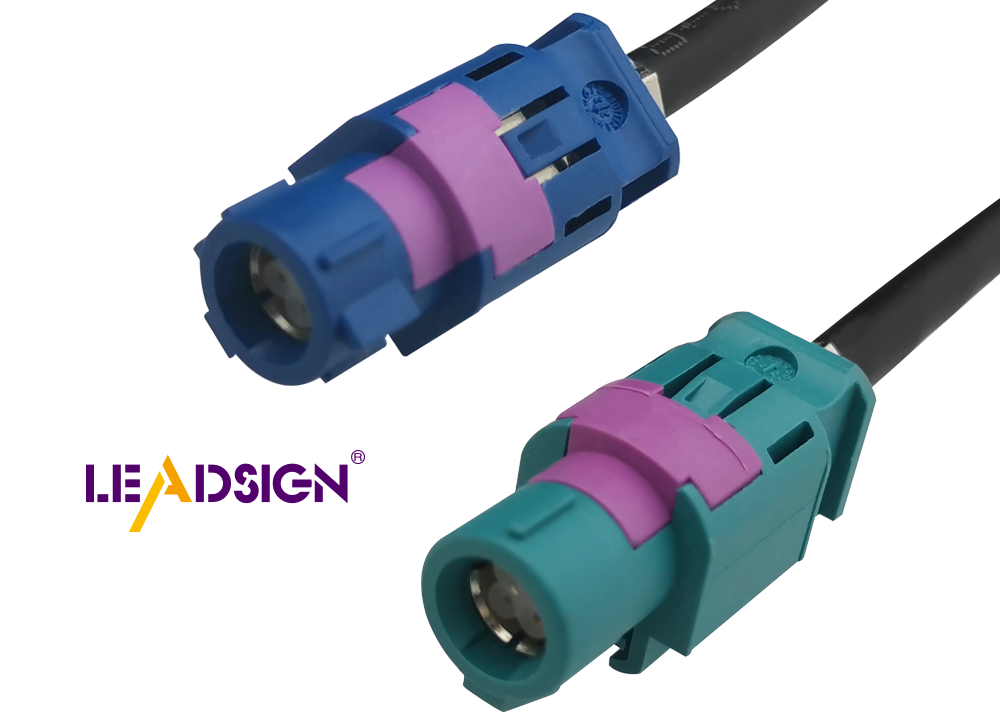Reviewing the Most Reliable Automotive Electrical Connectors Types

Automotive electrical connectors are crucial for your vehicle, as they facilitate the flow of electricity between components, ensuring the proper functioning of your car's electrical systems. There are approximately 100 automotive electrical connectors types used in vehicles. High-quality connectors prevent issues and enhance safety. Understanding the best types of connectors allows you to make informed choices, improving your car's performance and longevity.
Understanding Automotive Electrical Connectors
Definition and Features
Basic definition
Automotive electrical connectors are important parts in cars. They link electronic devices without needing to be soldered. This helps avoid electrical shorts and damage. These connectors give a strong connection, making sure your car's systems work well.
Key features and benefits
Automotive connectors have many automotive connectors have many:
Durability: Made to last in tough conditions, they handle temperature changes, shaking, and stress.
Weatherproofing: Many have seals or gaskets to keep out water, dust, and vibration.
Safety and Reliability: Good quality connectors, like OEM ones, give steady connections that cut down on repair costs and time.
Ease of Replacement: They make it simple to swap out old or broken parts, helping your car’s system last longer.
Applications in the Automotive Industry
Common uses in vehicles
You find automotive connectors all over a car. They connect circuits so electricity can flow and do its job. Common places include:
Engine parts
Infotainment systems
Lights
Safety gear like airbags and sensors
Importance in vehicle safety and performance
Good connectors are key for car safety and how well it works. They make sure all electronic systems talk right, which is important for things like anti-lock brakes. By keeping connections safe, these connectors stop problems that could be dangerous. Also, they help the whole car work better by making sure everything runs smoothly.
Types of Car Electrical Connectors
Knowing car electrical connectors is important. It helps keep your car's electric parts working well. Let's look at some common connector types and how they are used.
Blade Connectors
Features and benefits
Blade connectors are flat metal pieces. They are easy to plug in and take out. This makes them simple to use. They stay connected even if the car shakes or moves. Blade connectors last long in tough weather.
Common applications
You see blade connectors in many car parts. They connect wires for lights, switches, and relays. You can easily disconnect and reconnect them when needed.
Pin Connectors
Features and benefits
Pin connectors have a pin shape that fits into sockets fast. This keeps them from coming loose by accident. Pin connectors work well where many connections are needed.
Common applications
In cars, pin connectors go in engine controls, sensors, and other electronics. They fit lots of connections in small spaces.
Butt Connectors
Features and benefits
Butt connectors join two wires end-to-end inside a tube. They keep wires safe from outside damage. Butt connectors make strong links between wires without soldering.
Common applications
Butt connectors fix or extend wires during car repairs. They're great when soldering isn't possible, like in tight spots or with heat-sensitive parts.
By learning about these connector types, you can choose the best ones for your car's needs. Each type has special features to help keep your car's electric systems running smoothly.
Ring Connectors
Features and benefits
Ring connectors are special because of their round shape. They have a circle end that you can attach with a bolt or screw. This makes sure they stay tight and strong, which is important for your car's electric parts.
Key Benefits:
Secure Connection: The ring shape keeps them from getting loose, even if the car shakes.
Versatility: You can use them with different wire sizes, so they fit many car uses.
Durability: Made from good materials, they last long in bad weather.
Common applications
In cars, ring connectors are used where a tight hold is needed. They are often found in:
Battery Terminals: They keep the battery connected well for steady power.
Grounding Applications: Good for grounding wires to stop electric problems.
Engine Components: Used to connect wires to engine parts for steady work.
Knowing about ring connectors helps you pick the right ones for your car. This helps keep your car working well and safe.
Detailed List of Specific Products

When picking car electrical connectors, knowing top brands and models helps. Let's look at some of the best choices.
Top Brands and Models
Brand A - Model X
Brand A has Model X, a strong connector that's easy to use. It gives secure links, making it popular for cars. Its tough build lets it last in bad conditions.
Brand B - Model Y
Brand B offers Model Y, known for cool features and easy setup. It's made for tough spots, keeping your car's electric parts working well. It's good for many connector types.
Comparison of Features
Knowing different model features helps you pick the right one. We compare things like how long they last and how easy they are to set up.
Durability
Model X: Very strong, handles heat and shaking well. Made from good stuff that lasts long.
Model Y: Also strong but focuses on being flexible. Uses new materials to handle weather changes, good for many uses.
Ease of Installation
Model X: Easy to install, quickly connects wires safely. Its design stops mistakes, making setup simple.
Model Y: Easy to use with features that make setup simple. Its smart design saves time and effort, great for everyone.
By comparing these models, you can find what fits your needs best. Whether you want strength or easy setup, knowing these helps pick the right car electrical connectors.
Guide to Picking the Right Connectors
Picking the right automotive electrical connectors helps your car work well. This guide will help you choose wisely.
Things to Think About
Fit with car systems
Make sure the connectors fit your car's systems. Check your car's electric parts details. This helps you pick connectors that fit right. Wrong ones can cause problems or damage. Always check your car's manual or ask an expert if unsure.
Toughness against weather
Think about the weather your car faces. Connectors should handle heat, wet, and dust. Look for ones with seals or gaskets to protect them. These keep them working in bad weather, making them last longer. Strong connectors lower failure risks, keeping your car safe and steady.
Tips for Installing and Caring
How to install correctly
Good installation is key for connectors to work well. Follow these steps:
Clean contact spots: Get rid of dirt on wires and connectors.
Use proper tools: Use crimping tools made for your connectors.
Fit tightly: Push until they click in place firmly.
Check twice: Make sure all are tight before turning on power.
Best ways to care for them
Regular care makes connectors last longer. Here’s how:
Look often: Check for wear or damage signs.
Keep clean: Wipe with a dry cloth to remove dust.
Shield from water: Use grease to stop moisture build-up.
Store well: Keep extras in a dry, cool spot.
By thinking about these things and following tips, you make sure your automotive electrical connectors work best. This boosts how well your car runs and helps it last longer.
Picking good automotive electrical connectors is important for your car's safety and performance. These connectors keep connections strong, stopping electrical problems and helping systems last longer.
Main Types and Uses:
Blade Connectors: Best for lights and switches.
Pin Connectors: Great for engine controls and sensors.
Butt Connectors: Handy for fixing wires.
Ring Connectors: Needed for battery ends and grounding.
Final Tips:
Make sure they fit your car's systems.
Check the voltage rating to avoid issues.
Choose new designs to keep up with technology.
By using these tips, you can pick connectors that work well for your car.
See Also
The Significance of Fakra Auto Connectors in Modern Cars
The Value of FAKRA Connectors in Auto Uses
Understanding HSD Connectors in Auto Sector

